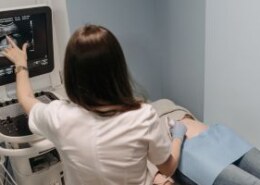The frequency of Adult Cancer Screening depends on your age, personal health history, family medical background, and specific cancer risk factors. In general, most adults should begin regular cancer screenings from the age of 40–50, but those with higher risks—such as a family history of cancer, certain genetic mutations, or lifestyle-related risk factors—may need to start earlier.
Common guidelines include:
Breast Cancer Screening – Women aged 40–74 are often advised to have a mammogram every 1–2 years.
Cervical Cancer Screening – Women should have a Pap smear every 3 years (ages 21–65) or a Pap smear + HPV test every 5 years.
Colorectal Cancer Screening – Recommended from age 45, with tests every 5–10 years depending on the method.
Prostate Cancer Screening – Men should discuss PSA testing with their doctor from age 50, or 45 for higher-risk individuals.
Lung Cancer Screening – Annual low-dose CT scans for adults aged 50–80 with a heavy smoking history.
It’s important to consult your doctor to create a personalised Adult Cancer Screening schedule. Early detection through regular screening can significantly improve treatment outcomes and survival rates.
If you experience unusual symptoms such as unexplained weight loss, persistent pain, or abnormal lumps, don’t wait for your next scheduled screening—seek medical advice promptly.


